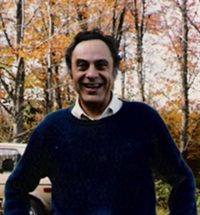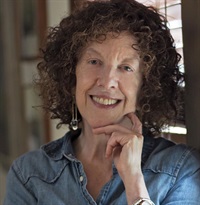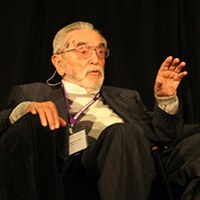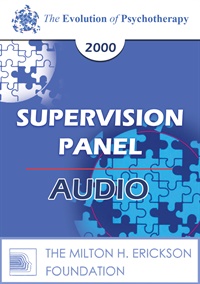EP00 Supervision Panel 3 - Eugene Gendlin, PhD; Harriet Lerner, PhD; Salvador Minuchin, MD
- Average Rating:
- Not yet rated
- Topic Areas:
- Supervision Panels | Psychotherapy | Therapist Development
- Categories:
- Evolution of Psychotherapy | Evolution of Psychotherapy 2000 | Pioneers in Couples and Family Therapy
- Faculty:
- Eugene Gendlin, PhD | Harriet Lerner, PhD | Salvador Minuchin, MD
- Duration:
- 1:05:36
- Format:
- Audio Only
- Original Program Date:
- May 27, 2000
- License:
- Never Expires.
Description
Description: Three seasoned clinicians explore the art of supervision, sharing how they help therapists grow through curiosity, clarity, and connection. Using real case material, they reflect on the emotional life of the therapist, how to foster safety without avoiding challenge, and ways to stay grounded while working with intense family dynamics.
Moderated by Michael Yapko, PhD.
Educational Objectives:
- To compare and contrast clinical and philosophical perspectives of experts.
*Sessions may be edited for content and to preserve confidentiality*
Credits
Handouts
| Timestamped Transcript (823.5 KB) | 19 Pages | Available after Purchase |
| Ericksonian Learning Snapshot (246.9 KB) | 2 Pages | Available after Purchase |
Faculty

Eugene Gendlin, PhD Related Seminars and Products
Eugene T. Gendlin, PhD, is an American philosopher and psychotherapist who developed ways of thinking about and working with living process, the bodily felt sense and the 'philosophy of the implicit'. Gendlin received his Ph.D. in philosophy in 1958 from the University of Chicago where he became an Associate Professor in the departments of Philosophy and Psychology.
His philosophical work is concerned especially with the relationship between logic and experiential explication. Implicit intricacy cannot be represented, but functions in certain ways in relation to philosophical discourse. The applications of this "Philosophy of the Implicit" have been important in many fields.
His philosophical books and articles are listed and some of them are available from this web site. They include Experiencing and the Creation of Meaning, (in paperback) and Language Beyond Post-Modernism: Saying and Thinking In Gendlin's Philosophy (edited by David Levin) , both from Northwestern University Press, l997 and A Process Model.

Harriet Lerner, PhD Related Seminars and Products
Harriet Lerner, PhD, is a clinical psychologist and a contributor to feminist theory and therapy. From 1972 to 2001, she was a staff psychologist at the Menninger Clinic in Topeka, Kansas and a faculty member and supervisor in the Karl Menninger School of Psychiatry. During this time she published extensively on the psychology of women and family relationships, revising traditional psychoanalytic concepts to reflect feminist and family systems perspectives.

Salvador Minuchin, MD Related Seminars and Products
Salvador Minuchin, MD, developed Structural Family Therapy, which addresses problems within a family by charting the relationships between family members, or between subsets of family. He was Director of the Philadelphia Child Guidance Clinic. Although it was minimally staffed when he began, under his tutelage the Clinic grew to become one of the most modeled and respected child guidance facilities in the world. In 1981, Minuchin began his own family therapy center in New York. After his retirement in 1996, the center was renamed the Minuchin Center. Dr. Minuchin is the author of many notable books, including many classics. His latest is Mastering Family Therapy: Journeys of Growth and Transformation. In 2007, a survey of 2,600 practitioners named Minuchin as one of the ten most influential therapists of the past quarter-century.


